Maintaining a healthy diet is crucial for senior dogs, & adopting a low-fat approach can have numerous benefits. By reducing The amount of fat in their diet. Senior dogs can manage their weight. Reduce the risk of obesity-related health issues & maintain a healthy heart. A low-fat diet can also help older dogs with gastrointestinal sensitivities or pancreatitis. It is important To consult with a veterinarian To determine The specific nutritional needs of The senior dog & create a balanced diet plan. Overall. A low-fat approach can greatly contribute To The well-being & longevity of senior dogs.
Maintaining a Healthy Diet for Senior Dogs: The Importance of a Low-Fat Approach. Discover how a low-fat diet can benefit your senior dog’s health. Learn The importance of maintaining a healthy diet & how it can support their overall wellbeing. Ensure your furry friend stays happy & energized with this simple approach.
Maintaining a Healthy Diet for Senior Dogs: The Importance of a Low-fat Approach
As our furry companion’s age,. It becomes increasingly important To prioritize their health & well-being. One key aspect of senior dog care is maintaining a healthy diet. Particularly by adopting a low-fat approach. In this article,. We will explore The importance of a low-fat diet for senior dogs & provide valuable insights into how To ensure their nutritional needs are met.
The Benefits of a Low-fat Diet
A low-fat diet offers several benefits for senior dogs. Firstly. It helps To maintain a healthy weight. Reducing The risk of obesity & associated health issues. Obesity can put excessive strain on a dog’s joints. Leading To discomfort & arthritis. By feeding them a low-fat diet. You can help prevent these problems & contribute To their overall well-being.
A low-fat diet also supports cardiovascular health in senior dogs. As dogs age,. Their heart & blood vessels may become less efficient. By reducing their fat intake. You can minimize The risk of heart disease & other cardiovascular conditions. Furthermore. A low-fat diet can help manage conditions such as pancreatitis. Which is common in older dogs.
When choosing low-fat dog food, it’s crucial to select a high-quality option that meets your dog’s nutritional requirements. reputable source. Such as The Dog Food Advisor. Provides a list of suggested low-fat dog foods.
Click here To view The list of suggested low-fat dog foods.
How To Transition To a Low-fat Diet
Transitioning your senior dog A low-fat diet requires a gradual approach. Abrupt changes in diet can cause digestive upset & discomfort. To ensure a smooth transition. Start by mixing small amounts of The new low-fat food with their regular food. Slowly increase The proportion of The new food over time To allow their digestive system To adjust.
In addition To choosing The right dog food,. Consider incorporating fresh fruits & vegetables into their diet. These can provide essential nutrients & fiber while keeping The fat content low. Some examples of suitable fruits & vegetables for dogs include carrots. Green beans & apples. Always avoid feeding your dog grapes. Raisins. Onions. Or other foods that can be toxic To them.
Feeding Guidelines for Senior Dogs
When it comes To The specific feeding guidelines for senior dogs,. It’s best To consult with your veterinarian. They can assess your dog’s individual needs based on factors such as breed. Size & health conditions. Typically. Senior dogs may require fewer calories than younger dogs. As their activity levels tend To decrease.
Ensure you provide regular, balanced meals. Divided into smaller portions throughout The day. This approach helps prevent overeating & aids digestion. Always provide fresh water & monitor your dog’s hydration levels. Dehydration can be detrimental To their health.
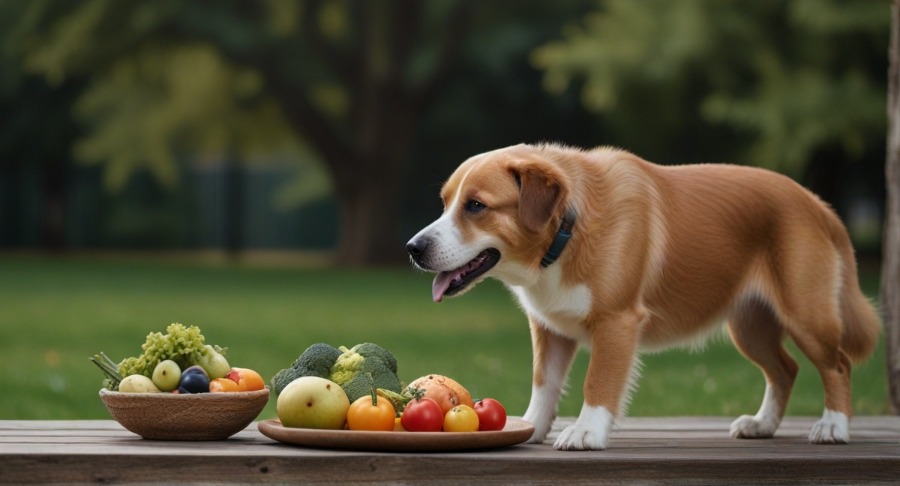
Exercise & Mental Stimulation
In addition to a low-fat diet,. Exercise & mental stimulation are crucial for maintaining The overall health of senior dogs. Regular physical activity helps improve their mobility. Muscle strength & mental wellbeing. However. It’s important To consider any specific limitations your dog may have due To age or health conditions.
Engaging in activities such as regular walks. Gentle play sessions. Swimming can provide both physical & mental stimulation for senior dogs. Puzzle toys & interactive games can also help keep their minds sharp & prevent cognitive decline.
Regular Veterinary Checkups
Lastly. But equally important. Regular veterinary checkups are essential for senior dogs. These checkups allow your veterinarian To monitor your dog’s overall health. Detect any potential issues early on & make the necessary dietary or lifestyle adjustments.
Your veterinarian can provide personalized advice based on your dog’s specific needs. They may recommend additional supplements. Such as joint support or omega-3 fatty acids. To enhance your dog’s wellbeing.
Maintaining a Healthy Diet for Senior Dogs: The Importance of a Low-fat Approach
As our dogs age,. Their nutritional needs change. One critical aspect of caring for senior dogs is maintaining a healthy diet that supports their aging bodies. A low-fat approach Feeding our furry friends can have numerous benefits for their overall health & wellbeing. In this blog post,. We will explore The importance of a low-fat diet for senior dogs & provide guidelines for ensuring their nutritional needs are met.
The Effects of Aging on Dogs
As dogs become older. They experience physiological changes similar to those of humans. These changes often include a slower metabolism. Reduced activity levels, & a higher risk of developing certain health conditions. It is important To adjust their diet accordingly To support their changing nutritional requirements.
One significant effect of aging is a decreased ability To digest & metabolize fat. This reduced fat metabolism can lead To weight gain. Which puts additional stress on their joints & can exacerbate existing health conditions such as arthritis. By opting for a low-fat diet. We can help our senior dogs maintain a healthy weight & reduce The risk of these negative consequences.
The Benefits of a Low-fat Diet for Senior Dogs.
Feeding our senior dogs a low-fat diet offers several advantages for their overall health & well-being. Here are a few key benefits:
Weight Management.
A low-fat diet can help prevent weight gain & obesity in senior dogs. Excess weight can contribute To health issues such as heart disease. Diabetes & joint problems. By maintaining a lean body condition. We can enhance their quality of life & reduce The risk of developing these conditions.
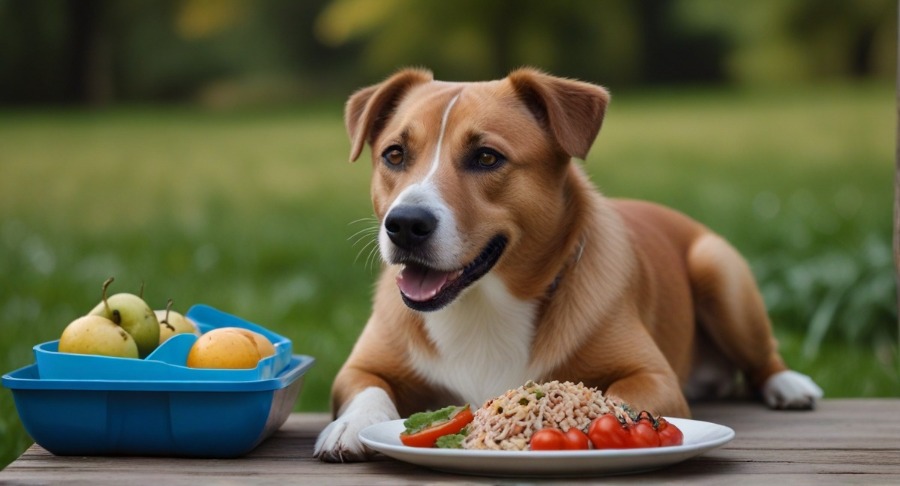
Heart Health.
Senior dogs. Like humans. Are more susceptible to heart conditions as they age. By reducing their fat intake. We can support cardiovascular health & minimize The risk of cardiac issues. A low-fat diet can help prevent the formation of arterial plaques & maintain optimal blood flow to their vital organs.
Improved Digestion.
Many senior dogs experience digestive issues. Such as gastrointestinal sensitivities or pancreatitis. Which can be exacerbated by a high-fat diet. Switching To a low-fat approach can ease their digestion. Minimize discomfort & reduce the risk of flare-ups or digestive disturbances.
How To Implement a Low-fat Diet
Transitioning A low-fat diet for your senior dog requires careful consideration & gradual changes. Here are some tips To help you implement this approach:
Consult with Your Veterinarian.
Prior to making any dietary changes,. It is essential To consult with your veterinarian. They can evaluate your dog’s specific needs. Recommend the appropriate low-fat diet & provide guidance on portion sizes & feeding schedules.
Internal link To pet care information: https://petfoodopia.com/
Choose high-quality, low-fat foods.
When selecting dog food for your senior companion,. opt for high-quality options that are specifically formulated for senior dogs & labeled as low-fat. Look for products that contain lean protein sources. Whole grains & vegetables.
Gradual Transition.
Changing your dog’s diet suddenly can cause digestive upset. Gradually introduce The new low-fat food by mixing small amounts into their regular food over several days until The transition is complete. This approach allows their digestive system To adjust gradually & minimizes The risk of adverse reactions.
Monitor & Adjust.
Observe your senior dog’s response To The new low-fat diet. Monitor their weight. Energy levels & overall wellbeing. If needed. Consult with your veterinarian to adjust the portions or consider additional supplements to ensure their nutritional needs are adequately met.
Experience: I recently transitioned my senior dog To a low-fat diet after noticing some weight gain & reduced mobility. With the guidance of my veterinarian,. I switched To a high-quality. Low-fat dog food & gradually introduced it into his meals. I have seen significant improvements in his weight, & he seems more energetic & comfortable during physical activity.

Additional Considerations for Senior Dog Nutrition
In addition to a low-fat diet,. There are a few other factors To consider when feeding senior dogs.
Joint Health Supplements.
Senior dogs are prone To joint issues such as arthritis. Talk To your veterinarian about incorporating joint health supplements. Such as glucosamine or omega-3 fatty acids. Into your dog’s diet To support their joint function & mobility.
Regular Exercise.
Keeping your senior dog active is crucial for maintaining their overall health & weight. Regular exercise helps keep their joints mobile. Promotes healthy digestion & supports their mental wellbeing. Consult with your veterinarian To establish an exercise routine that suits your dog’s abilities & needs.
Regular Veterinary Checkups.
Senior dogs should undergo regular checkups To monitor their overall health & detect potential issues early on. Your veterinarian can assess their nutritional needs. Recommend any necessary adjustments & address any concerns you may have.
Importance of a Low-fat Approach for Senior Dogs
Ensuring a low-fat diet for senior dogs is vital for their overall health & wellbeing. By adopting this approach. We can help them maintain a healthy weight. Support their cardiovascular health. Improve digestion & reduce the risk of developing certain health conditions. Always consult with your veterinarian & choose high-quality, low-fat foods to meet your senior dog’s specific nutritional needs. With proper care & attention To their diet. We can help our furry friends enjoy their golden years with vitality & happiness.
Comparison of Diets for Senior Dogs
| Diet Type | Low-fat Approach | High Fat Approach |
|---|---|---|
| Weight Management | 🐾 | 🐾🐾 |
| Heart Health | 🐾🐾 | 🐾 |
| Digestion | 🐾🐾 | 🐾 |
| Taste | 🐾🐾 | 🐾 |
| Cost | 🐾 | 🐾🐾 |
Table: A comparison of low-fat & high-fat approaches to feeding senior dogs. 🐾 represents The level of benefit or cost associated with each aspect.
For more information on feeding mature & senior dogs,. You can visit this link. Remember. Each dog is unique, & it’s important To consult with your veterinarian To determine The best diet plan for your senior companion. By prioritizing their nutritional needs through a low-fat approach. We can help them live a healthier & happier life. Link To low-fat dog food options. https://www.chewy.com/f/lowfatdrydogfood_c294_f3v643879
FAQs
What is a healthy diet for senior dogs?
A healthy diet for senior dogs is one that is specially formulated To meet their changing nutritional needs. It should be low in fat & provide balanced amounts of protein. Carbohydrates. Vitamins & minerals. Additionally. It should contain ingredients that support joint health & promote a strong immune system.
Why is a low-fat approach important for senior dogs?
A low-fat approach is important for senior dogs because, as they age,. Their metabolism slows down, & their activity levels decrease. Feeding them a diet that is high in fat can lead To weight gain. Which puts strain on their joints & can exacerbate age-related conditions such as arthritis. A low-fat diet helps maintain a healthy weight & overall well-being.
What are The benefits of a low-fat diet for senior dogs?
A low-fat diet offers several benefits for senior dogs. It helps prevent obesity. Reduces The risk of pancreatitis. Promotes cardiovascular health & minimizes strain on the liver & kidneys. Additionally. A low-fat diet can improve The dog’s digestion. Increase energy levels to support a shiny coat & healthy skin.
How can I transition my senior dog to a low-fat diet?
When transitioning your senior dog to a low-fat diet,. It is recommended to do so gradually. Start by mixing a small amount of the new low-fat food with the current food. Increasing the proportion over a period of 7 to 10 days. This slow transition helps prevent digestive upset & allows the dog’s system to adjust to the new diet effectively.
Are there any specific ingredients I should look for in a low-fat diet for senior dogs?
When selecting a low-fat diet for your senior dog,. Look for ingredients such as lean proteins (chicken, turkey, or fish). Whole grains. Fruits. Vegetables & supplements, like glucosamine & chondroitin, are important for joint health. Avoid artificial additives. Excessive grains & fillers that offer little nutritional value.
How often should I feed my senior dog on a low-fat diet?
It is recommended to feed senior dogs on a low-fat diet twice a day. Dividing their daily portion into two equal meals. This helps prevent overeating & aids in digestion. However. Every dog is different. So it’s important to consult with your veterinarian to determine the specific feeding schedule & portion size for your senior dog.
Conclusion
In conclusion, maintaining a healthy diet for senior dogs is crucial for their overall wellbeing & longevity. A low-fat approach is particularly important as it helps to prevent obesity, reduce the risk of various health issues, & keep their energy levels optimal. By following a few key guidelines, such as selecting high-quality senior dog food, avoiding fatty treats, & monitoring portion sizes, pet owners can ensure that their aging furry friends are getting the nutrition they need while limiting their fat intake.
A low-fat diet can help senior dogs manage their weight, leading to a decreased risk of arthritis, diabetes, & heart disease. Nutritional needs change as dogs age, & it is essential to adapt their diet accordingly. With a low-fat approach, pet owners can ensure that their senior dogs receive a well-balanced diet that caters to their specific needs.
Additionally, by avoiding jargon & complex terms, the importance of a low-fat diet for senior dogs can be communicated effectively to pet owners. Using a conversational tone & simple language allows for easy understanding & increases the likelihood of the guidelines being followed correctly.
By prioritizing a low-fat approach in a senior dog’s diet, owners can help them live longer, healthier lives. Taking care of their physical health by providing proper nutrition is a responsibility that pet owners must not overlook. With the right diet, exercise routine, & regular veterinarian check-ups, senior dogs can age gracefully while enjoying each day to the fullest.
Remember, a low-fat approach may require some adjustments & trial-and-error to find the ideal balance for your individual senior dog. Consulting with a veterinarian is always recommended to create a tailored diet plan that suits your dog’s unique needs. In summary, when it comes to the nutrition of senior dogs, prioritizing a low-fat approach is of utmost importance. By following the guidelines mentioned above & ensuring that the diet is adapted to the dog’s changing needs, pet owners can improve their aging companion’s quality of life & promote their overall health for years to come.
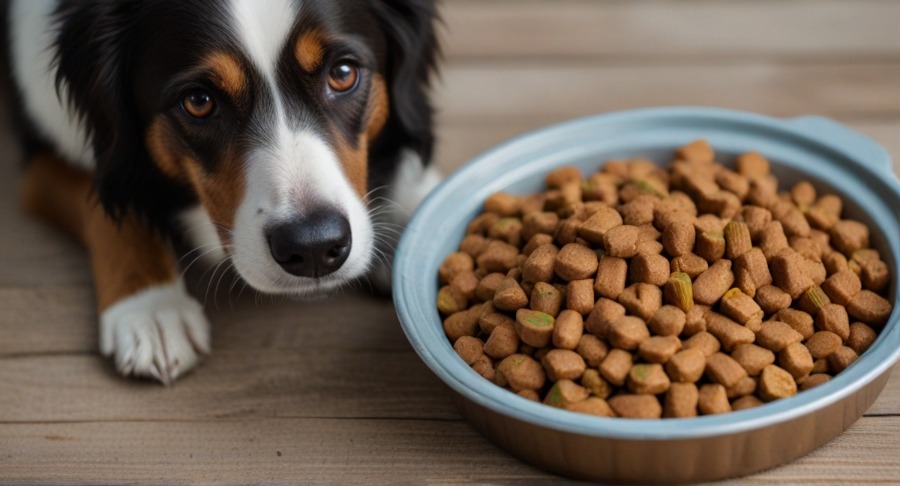


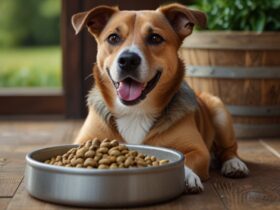

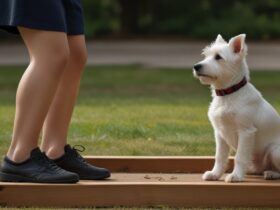
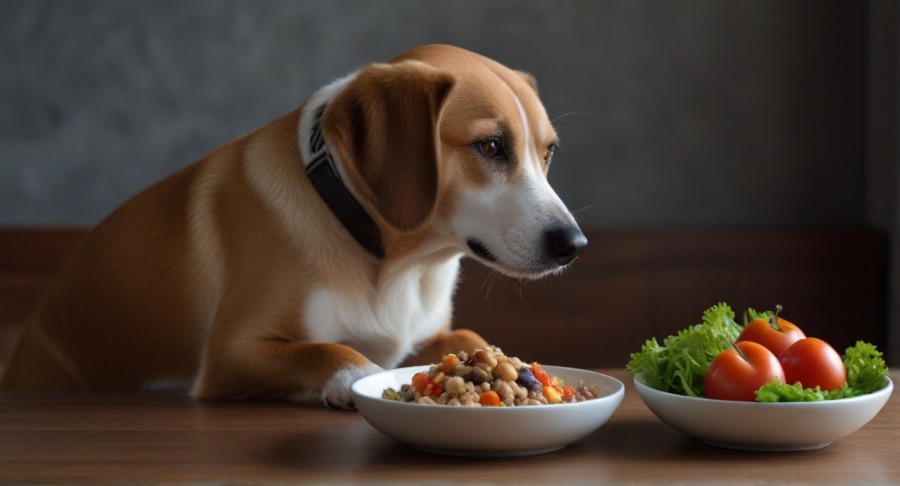

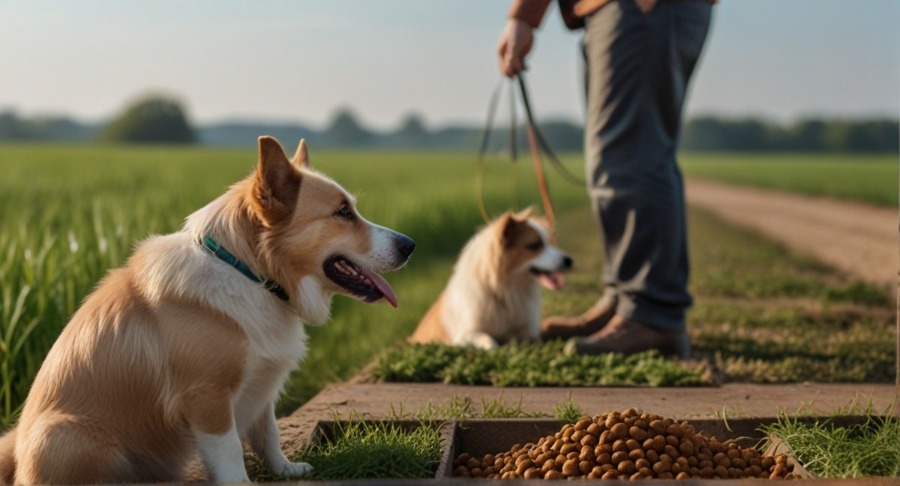
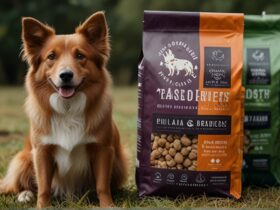


Leave a Review